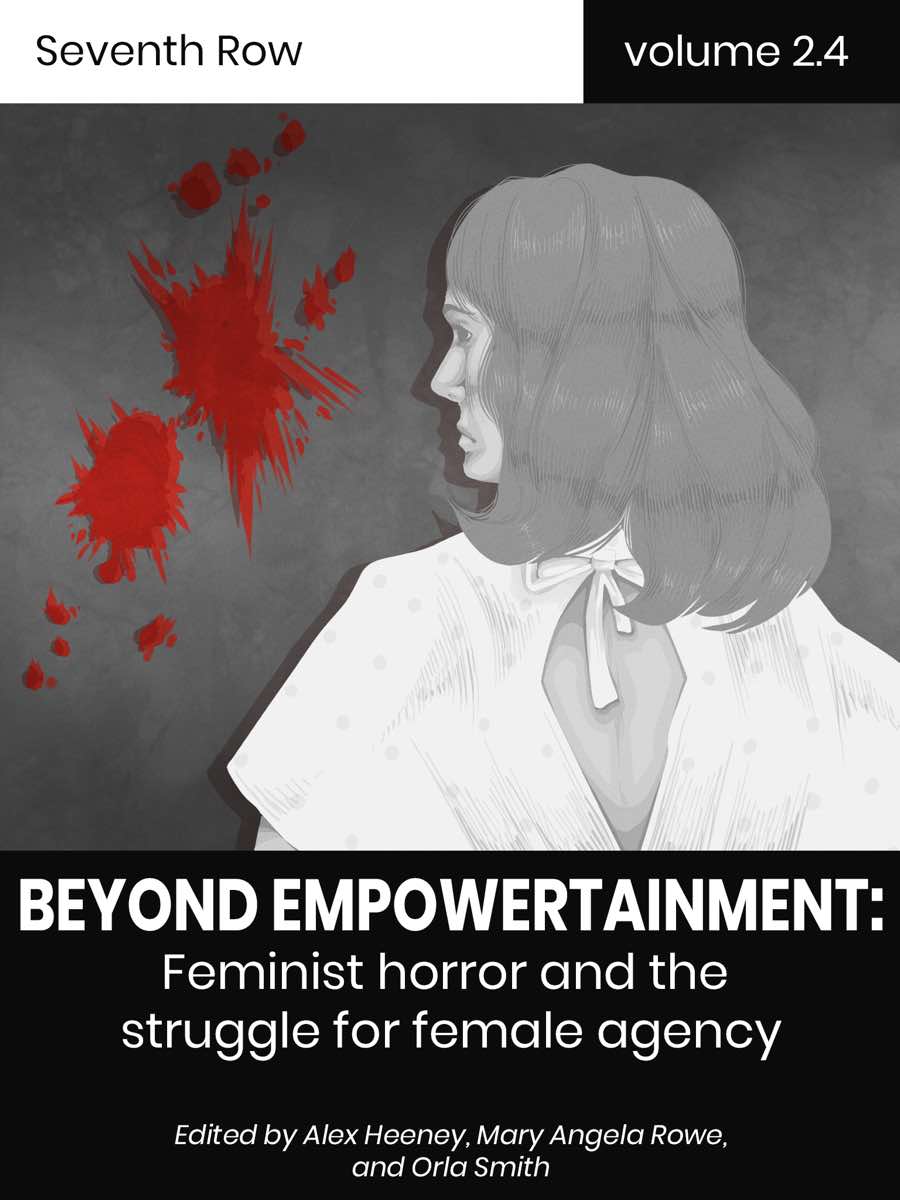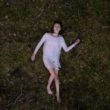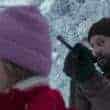Cinematographer Jakob Ihre discusses adapting to shooting on itital, lighting different characters for a thematic purpose, and how production design affects his creative choices.
This is an excerpt of the interview which appears in our case study on Thelma in the ebook Beyond Empowertainment: Feminist Horror and The Struggle for Female Agency, which is available for purchase here.
This is the third feature in our Special Issue on Thelma. Read the rest of the issue here. Read our interview with Ihre on Louder Than Bombs here.
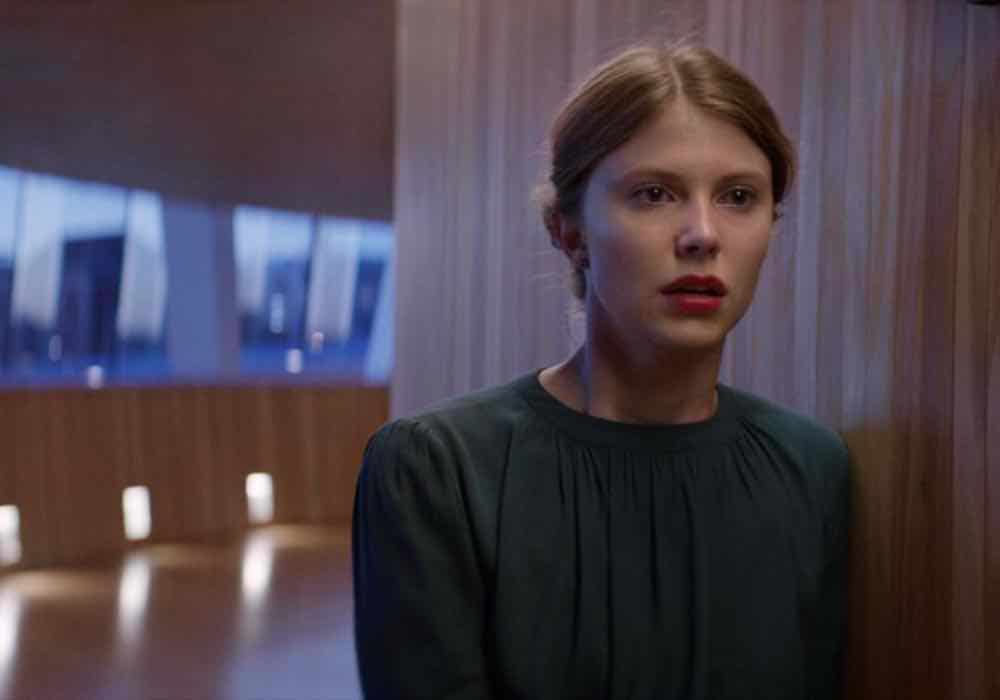
“We go out well prepared. But we really are looking for the unknown, to get those kicks, to get that adrenaline that we get when we find something new, when something happens in front of us.” Cinematographer Jakob Ihre has now been working with director Joachim Trier for more than a decade. They started collaborating on shorts in film school, and Ihre has shot all of Trier’s features to date.
Their new film, Thelma, is their first genre film after three realist dramas, and as such, required even more preparation than usual. There were so many complex lighting cues written into the script — from the strobe lights that trigger Thelma’s seizures to something as seemingly simple as the sun fading up. “Basically, with her powers and her feelings, with that comes a lot of lighting cues,” Ihre explained. One of the reasons for making a genre film was to give themselves license to let loose and play visually. Still, some of the greatest highs while shooting came when they went back to their roots, finding moments of raw, emotional truth, often with spontaneous handheld shots.
[clickToTweet tweet=”‘We are looking for the unknown, to get that adrenaline that we get when we find something new.'” quote=”‘We are looking for the unknown, to get that adrenaline that we get when we find something new.'”]
“I try always to choose a project which I can really invest my everything into. What’s unique about Joachim’s films is we know the stories very well. Even though this is a supernatural movie, emotionally, we are very well connected with the character. We find elements which are very personal to us. The way Joachim works, he wants you to be involved. He wants it to be my film as much as his film. I operate myself. I know the actors. I know the characters that they play very well. It becomes very engrossing.”
When working with Trier, Jakob Ihre is so personally invested in the project that his work goes beyond just his craft as a cinematographer; he’s a co-filmmaker. “Joachim could have been a Stanley Kubrick or a David Fincher if he wanted to, where he just does his thing and we all become someone who executes it. But he doesn’t want that from you. He wants a collaborator. He wants someone to explore with him. That’s what we enjoy the most when we look at the shot, while shooting, and feel we’ve discovered something new in this scene, or we capture a moment that we never thought would occur. He likes to discover this with us. He wants to find these moments with a band of collaborators.”
[clickToTweet tweet=”‘He likes to discover with us. He wants to find these moments with a band of collaborators.'” quote=”‘He likes to discover with us. He wants to find these moments with a band of collaborators.'”]
This collaboration starts the moment Ihre sees the script. “I sit down with Joachim at first just to go through the script, everything story-wise, to understand the characters, the motivations. Some days, you might do two pages or four pages, and you go slowly forward, talking through the film.”Trier usually comes to these meetings with some visual ideas in mind, but Thelma felt different to Ihre.
“In the writing process, they [Trier and co-screenwriter Eskil Vogt] do a lot of research so there’s always a folder with visuals that they’re inspired by. For Thelma, that folder was bigger. It had more reference pictures than in other films that we’d made together because they were so triggered by images for the writing.”
[wcm_restrict]
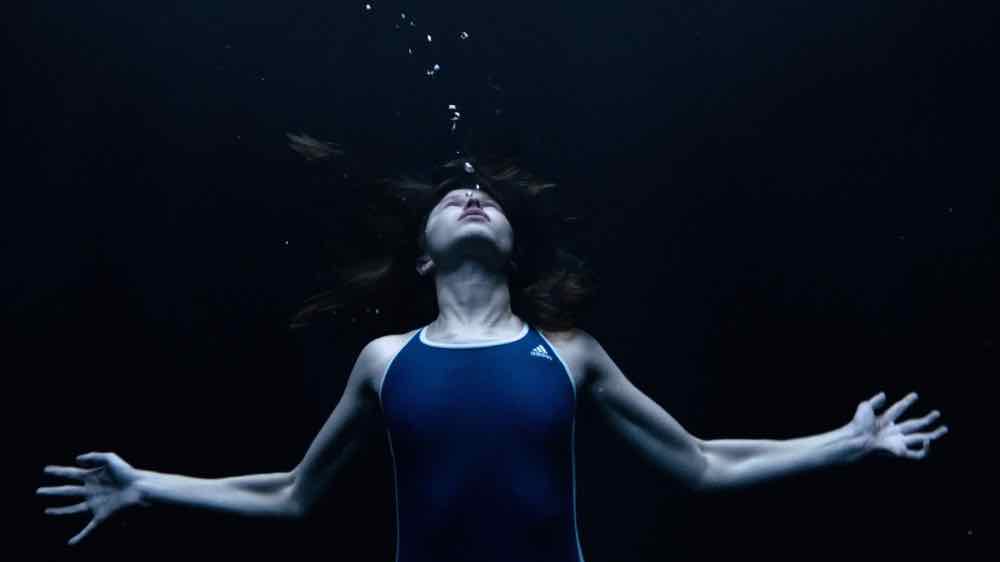
Thelma featured several new cinematography innovations for Ihre and Trier, making this film more than just an evolution of their previous style. They shot digitally instead of on 35 mm, used anamorphic instead of spherical lenses, and switched to a 2.35:1 aspect ratio. “We’ve always felt that spherical lenses — which we used in Louder Than Bombs, Oslo [August 31st], and Reprise — are more honest, more humane, and they don’t distort. They show what the eye sees. Anamorphic lenses don’t do that; they are like a slight optical haze to the film. Anamorphic lenses have so much glass in them, so you feel the optical elements in the glass. They bend reality. You feel more strained. The verticals in the room start to bend a bit, start to distort a bit. Faces bend, as well. You feel the squeezing process with the lenses. Part of the package of doing a genre film is to use anamorphic lenses and to use that scope. We thought that would suit the disoriented world of Thelma.“
Once these key decisions were made, “I’m let loose. I start to do the normal cinematography tests of testing different lenses, cameras, and lights. As I go along, I present those tests to Joachim.” The tests that Ihre does on his own help him “to build up my own ideas and references on how to portray the characters in terms of lenses and lighting.”
[clickToTweet tweet=”‘Part of the package of genre film is anamorphic lenses. That suited the disoriented world of THELMA.'” quote=”‘Part of the package of genre film is anamorphic lenses. That suited the disoriented world of THELMA.'”]
Ihre first determined what kind of anamorphic lenses to use. “Anamorphic lenses all have this distinctive look to them, but some of them have more character or feel more anamorphic — there are more distortions, they bend more, there are more aberrations. There are some newer anamorphics out which are cleaner and crisp and more optically perfect. And there are some which are really old and have lots of character. We went for something a little bit more neutral. They were slightly more subtle in their anamorphic look. “
Next, Ihre tested different digital cameras and decided on the Alexa Studio camera. “It’s slightly bigger, bulkier than the other Alexas, and that’s because it has a mechanical shutter inside, just like a film camera. It’s a heavier camera. For handheld work, I like the heavier camera on my shoulder. It gives the motion of my operating more gravitas. It’s heavier, less whimsical. It’s more sturdy.”
“To my eye, the mechanical shutter on the Alexa makes motion look more film-like. It might be a very subtle thing, but I get the impression that it handles movement better. The film has so many strobe sequences. The mechanical shutter in this camera handles strobe better. A digital shutter doesn’t handle strobe well: the strobe sometimes just exposes half of the image.”
[clickToTweet tweet=”‘To be blunt, I wish always that we had shot most digital projects, at least this one, on film.’ – Jakob Ihre” quote=”‘To be blunt, I wish always that we had shot most digital projects, at least this one, on film.’ – Jakob Ihre”]
Although Ihre has shot on digital with other filmmakers, he is a staunch partisan for shooting on emulsion; before Thelma, all of Trier’s films were shot on film. When I spoke to Ihre in 2016 about shooting Louder Than Bombs, he talked about how the emulsion process that film undergoes was a crucial part of the aesthetic of Trier’s films, how it was necessary for storytelling. He still prefers 35 mm, but found ways to compensate on Thelma to still get a look that he was happy with. “To be blunt about it, I wish that I had shot most digital projects, at least this one, on film. In the end, we are putting all this effort into making it more like emulsion.”
“You have all these tools where you’re trying to almost make it look more pleasant to the eye or more cinematic-looking. Often, when you shoot today on digital with spherical or anamorphic lenses, you often shoot with a shallow depth of field. That’s partly because it looks nice and can be suitable for the story. Technically, it helps to disguise the digital format. It breaks down, or you see less of it somehow with a shallower stop, with a more blurry background. The anamorphic does that. The anamorphic lenses, because of the artifacts that they have, they’re not technically perfect — the edges go soft, the image gets a little bit more distorted. It also hides the fact that you’re shooting digitally. Then, you add digital grain to hide the cleaner look of a digital format. We even shoot with this mechanical shutter like on film cameras, that we have inside the digital camera, also to give it a filmic, emulsion look.”
[clickToTweet tweet=”‘You have so many films inside you, thousands of images that are just part of your DNA.’ – Jakob Ihre” quote=”‘You have so many films inside you, thousands of images that are just part of your DNA.’ – Jakob Ihre”]
“We make a shooting bible with floorplans, storyboards. We pre-shoot sequences during scouting and prep with a smaller DSLR camera, with ourselves and production assistants playing the different parts. But we never make a style bible or a presentation on how should the film look, like what are the colours. We never make such big statements. It’s something we have within us. It’s very intuitive.” Ihre likens the process to cooking where the ingredients are set, but intuition determines how much of each to use and in what precise recipe. “You’re not holding up a document saying ‘this is what we want to do’. It’s that you have so many films inside you, thousands of images that are just part of your DNA. When you’re shooting, it’s like ‘This reminds me of Lady of Shanghai by Orson Welles’.” Ihre noted that he was partly inspired by the Swedish artist Ola Billgren, and his photorealist paintings from the 1960s. Yet “I don’t think I even showed this to Joachim. It’s just something I played with.”
When designing the lighting for the film, a key decision was to keep Thelma out of direct sunlight: “Thelma is never really hit by the light. She’s always walking in the shade, or the sun is always near her but never there. Anja is often backlit. She gets the sun on her. When Thelma’s with Anja, the light bounces off Anja toward Thelma, like it’s being transmitted from one to the other. We follow that guideline until the very end when [Thelma] has come to terms with her powers and with her love. She walks back to the house after her father has burned in the boat, and her mother sees her standing by the armoire with the phone in her hand: it’s the first time the hard light is hitting her. Now, you feel the presence of her powers, that she has come to terms with who she is and what she wants to do.”
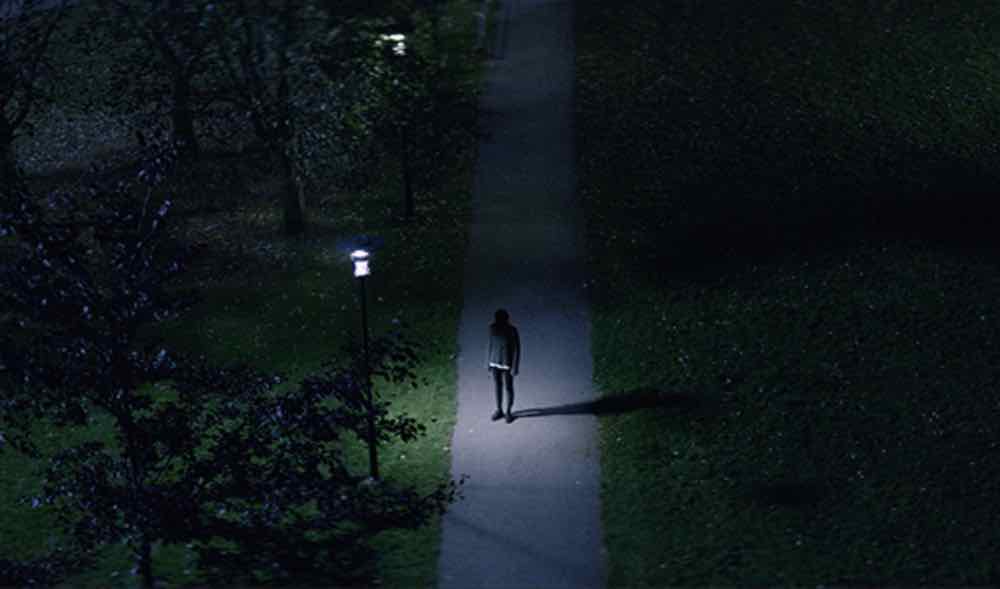
Ihre’s technique for how to light Thelma was inspired equally by Botticelli and Superman. “The film is based so much on the love between her and Anja and the powers that she discovers.” Consequently, Ihre and Trier used everything from biblical references to manga references to find a way to visually show the relationship between Thelma’s powers and light. “There are Botticelli and other Renaissance painters depicting when God sends the Angel Gabriel with the message to Maria and gives her the news that she is pregnant. In the Botticelli annunciation paintings, there’s often a ray of light hitting Maria at that moment when she gets this message.” Similarly, in the Superman films and comics, there are images of “Superman being heated by or healed by the sun to get his powers back.”
“We tried to, in a playful way, in a genre world, to give the other characters some kind of lighting attributes. The mother has a very clear, pinpoint eye light, which would make her eyes look more intense, sharp, and hopefully scary. In the wheelchair, she’s in situations where she is half in silhouette or she is hit by a hard, top table light. It gives her thriller-horror-like shadows over her face.”
“In Louder Than Bombs, we started to use zooms quite a lot.” Ihre and Trier continued to explore using zooms in Thelma, with an emphasis on clean zooms in a straight line, zooming in on Thelma who is at the centre of the frame. “It’s always the quickest way from A to B. Once it starts, it follows that line throughout. It’s not searching. It’s a very decisive zoom. The zoom is never panning or meandering.”
[clickToTweet tweet=”Trier expresses characters’ interiority: zooms occur when a character is still, but actively thinking.” quote=”Trier expresses characters’ interiority: zooms occur when a character is still, but actively thinking.”]
The purpose of the zooms goes back to Trier’s and Vogt’s interest in expressing the interiority of their characters: the zooms occur when a character is still, but actively thinking. “We like to be dynamic in our mise en scène, going from handheld to track or using a zoom in the same scene. There are so many moments in Thelma where she is standing still or sitting still, but something is going on in her mind. Zooms are often on non-dialogue scenes. Those moments often have a moody score or a booming bass, which lends well to a zoom or a track.”
A key set piece in the film takes place at the Oslo Opera House, a landmark building Trier chose as an almost Hitchcockian reference. “It was really hard to get permission to be in there. It’s a beautiful building. It was an incredible place to shoot.” The stylized architecture of the building led to more avant garde lighting choices, which helped highlight the genre elements since this was the site of one of Thelma’s seizures. “In the scene at the Opera House, where Thelma and Anja have left the performance hall and are in the cloakroom, there is a wall structure that was designed by world renowned Icelandic installation artist Olafur Eliasson. So we almost had his production design by default. We had all these incredible elements in there. How to shoot this was the challenge.”
The dance performance that appears in the film — “Sleight of Hand” by choreographers Sol León and Paul Lightfoot, set to music by Philip Glass — was shot live, almost like a documentary. “We actually shot a real show with a real audience for the performance scenes. Joachim and I had access to the Opera House, and we could rehearse camera moves. We had great support from the Oslo Opera House to pull this off. The shot of Thelma walking into the auditorium for the first time, and we tilt up to the light in the ceiling, that’s with a real audience, the same day that we shot the dancers.”
[clickToTweet tweet=”‘From the start, we thought THELMA would be more stylized: we’re making a magic, supernatural movie. – Jakob Ihre'” quote=”‘From the start, we thought THELMA would be more stylized: we’re making a magic, supernatural movie.'”]
When Ihre watched Thelma recently, he could observe the result of this approach that “even in those fantastical moments, the light is still naturalistic. From the beginning, we thought this film would be more stylized: we’re making a magic, supernatural movie. The script itself was based on all these visual cues and ideas. But in the end, it became a portrait of a young woman, a very real and naturalistic portrait.” While shooting, Ihre would look back and think, “maybe we should have been stronger or more stylized in our lighting. But that felt wrong. We wanted to portray a real character in a real setting. In order to portray that well, to make that believable, even the lighting had to be believable and naturalistic. The normal scenes that aren’t dream sequences are actually naturalistic.”
The locations Trier and Ihre chose during the scouting process dictated this more naturalistic lighting. “That’s the way I often work. I come to a real place, and I want to still make it feel real. Maybe if we had built sets or found locations that were more stylized, the lighting would have become more stylized, as well.” When they were still doing camera tests, they shot some tests with Eili Harboe, who plays Thelma, in the basement of a house they were scouting but didn’t end up using in the film. The house had a real fireplace and small windows that were quite high up near the ceiling, “almost like a cellar, below the surface. That light became very stylized, very horror and moody, with that fire light in a dark room. Those windows were also very stylized. They looked quite unusual. Those lighting setups for the tests were very stylized, but that’s also because that location had those attributes.”
For Ihre, what makes the camera-work interesting is when he finds a mix of very planned, formal shots, and more off-the-cuff, visceral, handheld work. There’s a beautiful scene in Thelma when Thelma and Anja arrive at a dance club and dance together. “We used SteadiCam, for that scene of them walking in and dancing, to make things more smooth, more dreamy, more magical. But I remember, while we were shooting that, I actually grabbed the second camera, and got some shots handheld, which are more visceral with more tension and give the scene a new point of view. The full effect of a handheld shots often occurs when they stand against a smoother (SteadiCam) or a static shot.”
Ihre’s favourite shot in the film involved a similar on-the-fly approach. “There’s a scene on the balcony between Thelma and Anja, and they’re smoking and talking at night. That’s a scene which was only planned as a scene on the balcony with no exact shot list. There’s a moment there where we are on Thelma, and we linger on her for a while, and they don’t cut. You would expect them to cut to a reverse shot, but the camera stays on her. Then, suddenly, we have a pan that goes from Thelma to the blackness of the exterior suburbs, and the pan ends when it reaches Anja in profile. It wasn’t planned; that just happened. Something special was captured between the two of them, that energy between them. Our amazing 1st AC, David Regan, managed to keep that in focus when the shot ends, to land in focus, which is very difficult.”
Working with Trier and his team makes Ihre feel “the joy of playing together. Because we know each other, it’s easier to give each other ideas and to give feedback to each other between the departments. Joachim is a very strong, visionary leader. But at the same time, it’s very collaborative. The stakes are getting higher every time. We have to step up on every film — how to tell the story the best way with the given time and budget. We can’t make the same mistakes again. We have to keep on improving.”
Read the rest of our Special Issue on Thelma >>
[/wcm_restrict]
